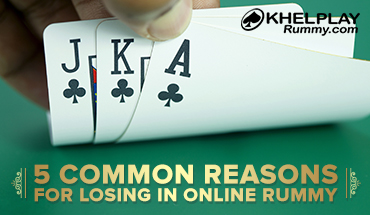
Rummy, one of the popular card games enjoyed by people of all ages, has a rich and fascinating history that traces back through centuries. This captivating game, known for its strategic gameplay and social interactions, has evolved over time, leaving a lasting impact on various cultures and communities. In this article, we’ll take a journey through the history of rummy games, exploring its origins, transformations, and enduring appeal.
Introduction
Rummy games have transcended time and borders to become an enduring source of entertainment and mental stimulation. From ancient origins to the modern digital age, rummy’s evolution has been shaped by cultural influences, technological advancements, and the inherent appeal of strategic gameplay.
Ancient Roots of Rummy Games
The origins of the rummy game can be traced back to the traditional playing card games of China and Asia. Early forms of real rummy like games were played in these regions, emphasizing the melding and matching of card sets. The concept gradually made its way to Europe, with games like “Conquian” in Mexico and “Khanhoo” in China sharing similarities with modern rummy.
The emergence of Modern Rummy
The 19th century saw the emergence of the card game of modern rummy as it spread across Europe and the United States. The introduction of standard decks of cards and refined rules laid the foundation for the game’s recognizable mechanics. “Gin Rummy,” a variant that gained immense popularity during the Prohibition era in the US, showcased rummy’s strategic depth.
Spread and Popularity
As travel and communication improved, rummy games spread to various parts of the world, adapting to local preferences and cultures. In India, “Indian Rummy” became a beloved pastime, while other countries developed their own unique variations.
Variations of Rummy
Rummy’s adaptability has led to the creation of numerous variations, each with its own rules and nuances. From the straightforward “Straight Rummy” to the intriguing “Kalooki” and the fast-paced “Speed Rummy,” players have a diverse range of options to choose from.
Rummy in Popular Culture
Rummy online has also left its mark on literature, movies, and music. Countless books and films have featured rummy games, portraying the excitement and camaraderie associated with the game. Its inclusion in popular culture has contributed to its enduring charm.
Digital Age and Online Rummy
The digital age brought the rummy card game to virtual platforms, allowing players to play rummy online anytime, anywhere. Online rummy platforms offer convenience, a wide range of opponents, and competitive tournaments, propelling the game’s popularity to new heights.
The Social Aspect of Rummy
The appeal of the Online Rummy game extends beyond gameplay. It serves as a social activity that brings friends and families together. The friendly banter and shared experiences during rummy cash games foster connections and create lasting memories.
Psychological and Cognitive Benefits
Engaging in rummy games online isn’t just fun; it also offers cognitive benefits. The game requires strategic planning, memory retention, and quick decision-making, which contribute to mental agility and improved focus.
Rummy’s Influence on Skill Development
The blend of skill and strategy of Online Rummy cash games, both of which have a positive impact on skill development. Players enhance their critical thinking, pattern recognition, and risk assessment abilities, which can be applied in various aspects of life.
Why Rummy Remains Relevant
Despite the digital era’s rise, rummy has maintained its appeal due to its timeless nature. The balance between chance and skill, coupled with the social interactions it encourages, makes rummy a game that transcends generations.
Cultural Significance
Rummy has embedded itself in various cultures, reflecting the values and traditions of different societies. Its adaptability and ability to bridge generational gaps have contributed to its significance as a cultural phenomenon.
Global Rummy Tournaments
The competitive aspect of rummy has given rise to global tournaments that attract skilled players from around the world. These tournaments not only showcase exceptional gameplay but also foster international camaraderie.
Preservation of Traditions
In an ever-changing world, rummy’s preservation of traditional gameplay and values is noteworthy. It serves as a reminder of the importance of connecting with others through shared experiences.
Conclusion
In the intricate tapestry of games, rummy holds a special place. Its evolution from ancient roots to the modern era reflects its adaptability and timeless appeal. As we continue to play rummy, whether around a table or through screens, we honour its rich history while embracing the connections and enjoyment it brings.




